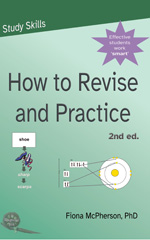K. Anders Ericsson, the guru of research into expertise, makes a very convincing case for the absolutely critical importance of what he terms “deliberate practice”, and the minimal role of what is commonly termed “talent”. I have written about this question of talent and also about the principles of expertise. Here I would like to talk briefly about Ericsson’s concept of deliberate practice.
Most people, he suggests, spend very little (if any) time engaging in deliberate practice even in those areas in which they wish to achieve some level of expertise. Experts, on the other hand, only achieve their expertise after several years (at least ten, in general) of maintaining high levels of regular deliberate practice.
What distinguishes deliberate practice from less productive practice? Ericsson suggests several factors are of importance:
The acquisition of expert performance needs to be broken down into a sequence of attainable training tasks.
- Each of these tasks requires a well-defined goal.
- Feedback for each step must be provided.
- Repetition is needed — but that repetition is not simple; rather the student should be provided with opportunities that gradually refine his performance.
- Attention is absolutely necessary — it is not enough to simply mechanically “go through the motions”.
- The aspiring expert must constantly and attentively monitor her progress, adjusting and correcting her performance as required.
For these last two reasons, deliberate practice is limited in duration. Whatever the particular field of endeavor, there seems a remarkable consistency in the habits of elite performers that suggests 4 to 5 hours of deliberate practice per day is the maximum that can be maintained. This, of course, cannot all be done at one time without resting. When the concentration flags, it is time to rest — this most probably is after about an hour. But the student must train himself up to this level; the length of time he can concentrate will increase with practice.
Higher levels of concentration are often associated with longer sleeping, in particular in the form of day-time naps.
Not all practice is, or should be, deliberate practice. Deliberate practice is effortful and rarely enjoyable. Some practice is however, what Ericsson terms “playful interaction”, and presumably provides a motivational force — it should not be despised!
In general, experts reduce the amount of time they spend on deliberate practice as they age. It seems that, once a certain level of expertise has been achieved, it is not necessary to force yourself to continue the practice at the same level in order to maintain your skill. However, as long as you wish to improve, a high level of deliberate practice is required.
Ericsson, K.A. 1996. The acquisition of expert performance: An introduction to some of the issues. In K. Anders Ericsson (ed.), The Road to Excellence: The acquisition of expert performance in the arts and sciences, sports, and games. Mahwah, NJ: Lawrence Erlbaum.
